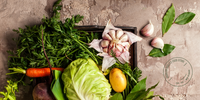
Organic viticulture (the cultivation and harvesting of grapes) does not use chemicals or synthetic fertilizer in the growing and production process. In the period 1950 to 1990, agriculture as a whole made heavy use of newly available chemicals to control pests and disease and viticulture was no exception.
Belief in these miracle chemicals can be understood more easily against the background of the unimaginable toll that devastating diseases like powdery mildew, black rot and Phylloxera had in the century previous. Destroying over 70% of vines in Europe and beyond, families and businesses alike lost their vineyards, livelihoods and in many cases their wine heritage. It took decades for the fear of such events to ease and in fact stringent precautions are still in place in the wine community worldwide to this day in a bid to prevent such a reoccurrence.
The life of the soil in the vineyard is fundamental to wine making and the heavy use of chemicals can result in vineyards being over fertilised, vines weakened, terroir masked and soil life compromised. People were likely unaware and or indeed unwilling to appreciate the effects that some of these chemicals would have on the environment and consequently, wine production had a significantly negative environmental impact in wine producing countries. As the possible ill effects of those chemicals on the health of wine drinkers became evident, the market for organic wines became consumer driven and change was imminent.
Organic winegrowers face the threat of disease and pests in a number of ways. Planting green cover acts like crop rotation in general organic farming, attracting insects which keep pests like the grape vine moth down and provides natural fertiliser from the mulch created therefor feeding the soil naturally. Choosing grape varieties that suit the location is critical, spacing the vines and working in a very careful and informed way now allows for sustainable grape growing. These and low intervention practices using plant-based infusions allowable under organic farming regulation have resulted in many turning to or indeed back to organic production methods as a real and viable business model.
The wide availability of organic wines now on the market means consumers can make choices with much less effort than before and this they are doing. Good news for the organic grower and the consumer.
Sensi Ninfato Toscano Sangiovese Merlot - a full-bodied Italian Sangiovese. Fermented without the use of added Sulphites, thus limiting the amount present to less than 9 mg/l.
Matsu El Picaro - Spanish Tempranillo farmed from 90-year-old vineyards. Harvested by hand, the wine completed its fermentation in French oak barrels and aged for 3 months. Organic and biodynamic. Unfiltered and unclarified.
Piedra Negra Pinot Gris - A variant of the red grape Pinot Noir, the skin of the Pinot Gris grape has a distinctive grey-ish, slightly-pink colour, hence its name. Grown at the foothills of the Andes, this is an intense and fresh wine with notes of pear and lime, aromas of quince, melon and green tea.




















